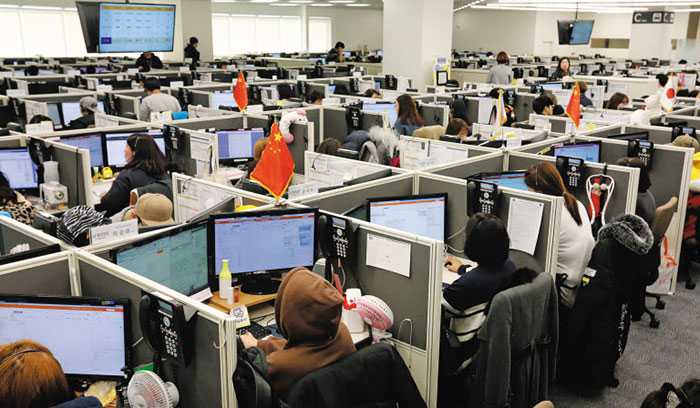Visa Regulations Bedevil Korea's New Global Businesses
22 February, 2018

Call-center outsourcing company Ubase faces a major crisis because of problems getting visas for foreign staff.
The company, which is based in Bucheon west of Seoul, has grown rapidly in recent years by offering foreign-language call-center services to multinationals. But the Justice Ministry recently stopped extending E-7 "special occupation" visas for Ubase's foreign staff, forcing the company to send them home.
The ministry said call-center work is not included in the 82 skilled professions that meet the criteria for E-7 visas and the jobs can be done by Koreans.
Ubase CEO Hur Dae-gun said, "I don't know what to do, since we will have to lay off 97 workers in May if the ministry doesn't relent."
Industry watchers say the case demonstrates the failure of Korean laws to keep up with the rapid growth of venture businesses here.
Ubase began offering foreign-language call-center services to a global hotel booking engine in 2014 and now has around 20 clients. Staff have to be fluent in English, Chinese or Japanese and are mostly university graduates, while some even have master's degrees in hotel management or education from foreign universities.
But comfortable speakers of foreign languages can be hard to find in Korea, and the company's foreign staff has swelled from 20 to 470, while the number of Korean workers rose from 18 to 260.
Ubase says the foreigners did not drive Koreans out of work but created new services resulting in job growth. The proportion of revenues from foreign clients at Ubase has grown from five to 15 percent over the last three years.
Staff work in a Ubase call center in Bucheon, Gyeonggi Province on Wednesday.
The problem is that Korean visa regulations lag way behind the emergence of new businesses.
"Korean employment visas are open primarily to manufacturing workers, but companies that wish to hire foreigners with university degrees in the service industry face numerous obstacles."
Foreigners wishing to work in non-manufacturing areas must obtain E-7 visas, and Ubase staff apply as interpreters, travel product planners or overseas sales staff. But last November the ministry started questioning why Ubase workers require E-7 visas when they merely offer call-center services.
The ministry said Ubase should be able to hire Koreans who are fluent in foreign languages, but the company says foreign clients prefer workers whose first language is English, Japanese or Chinese to ensure that they have a firm grasp of the culture of customers who are asking questions.
A Ubase staffer said, "If we are can't keep our foreign staff we may have to shut down."
Ubase is not alone in coming up short against visa regulations. D.Camp, which provides artificial intelligence data-processing services, recently tried to hire program developers from France and Denmark but gave up after running into visa problems.
"Last year we spent three months preparing a visa application for a deep-learning expert from India before we succeeded in getting a visa," D.Camp CEO Yoon Duk-chan said. "We gave up trying hire more foreign experts because the Justice Ministry told us it wouldn't issue any more visas."
The ministry employs what it calls a "positive regulation" policy where the government is involved in each application process. E-7 visas are designed for workers in 82 professions, including chefs, actors and designers, and unless a foreigner can somehow be shoehorned into one of these categories, the visa will be denied.
Lee Byung-tae at the Korea Advanced Institute of Science and Technology said, "Korean visa policy is lenient toward cheap foreign laborers but makes it hard for highly skilled professionals. We need to drastically overhaul the visa policy to encourage skilled workers like the U.S. and nurture the growth of new businesses."
But a ministry official said, "Expanding visas for foreign workers can have a major impact on society, and revising policies will not be easy. But we will listen to the views of businesses and try to help them to create more jobs."
